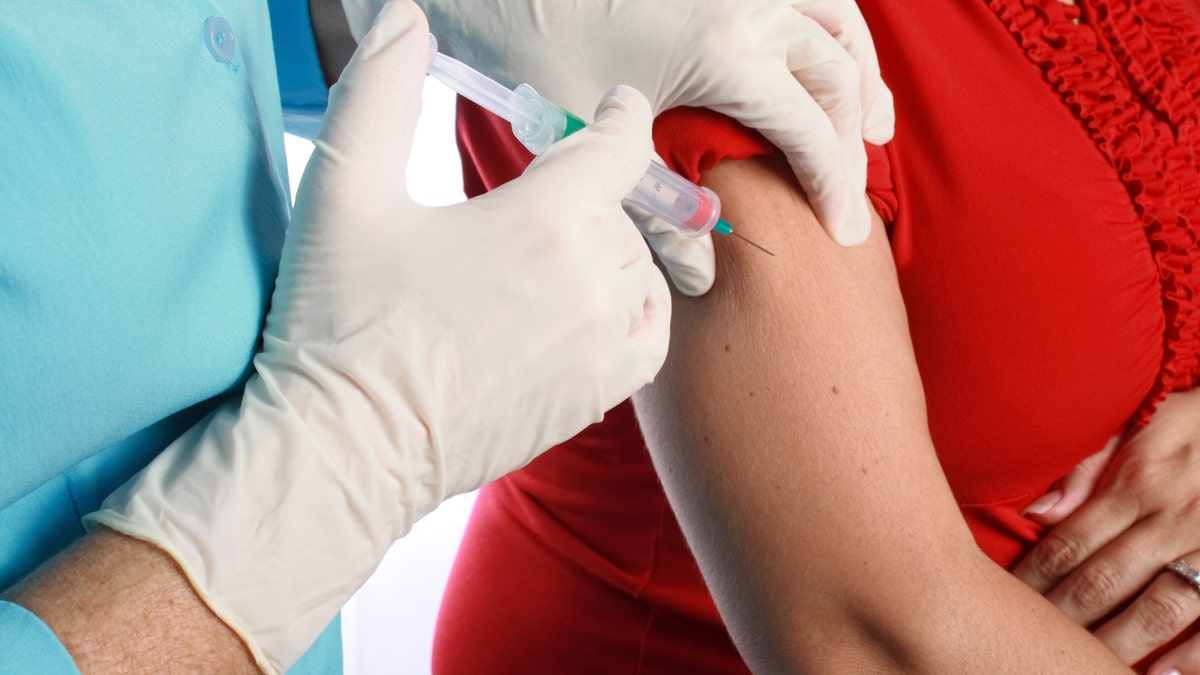
Medical shot of pregnant woman receiving innoculation.See more H1N1 photos here: (iStock)
Certain vaccines are actually recommended during pregnancy: the Tdap vaccine (tetanus, diphtheria, and pertussis), which helps protect against whooping cough, as well as the flu shot.
You can get the flu shot during any trimester or before pregnancy, depending on whether it’s flu season when you’re expecting. Experts generally recommend that pregnant women get the Tdap between the 27- and 36-week marks.
MIDDLE-AGE WOMEN CAN CHOOSE PAP SMEAR OR HPV TEST FOR CANCER SCREENING
Any friends and family members who will spend time around your newborn should get these vaccines, too.
Then there are the vaccines you definitely should not get if you’re pregnant. Types made with live strains of a virus could potentially transmit the virus to the baby.
The MMR (measles, mumps, and rubella) vaccine is a live-virus vaccine; women are advised to wait at least a month after receiving it before getting pregnant. Same goes for the varicella vaccine (for chicken pox).
MENOPAUSE HORMONE THERAPY NOT LINKED TO PREMATURE DEATH
Many women received these vaccines as children, but your doctor will want to make sure you’re immune by doing a pre-pregnancy blood test.
Rubella, for example, can cause serious birth defects if a pregnant woman gets infected—so it’s important to make sure you’re up-to-date on all vaccinations before you try to conceive.
This article first appeared on Health.com.
